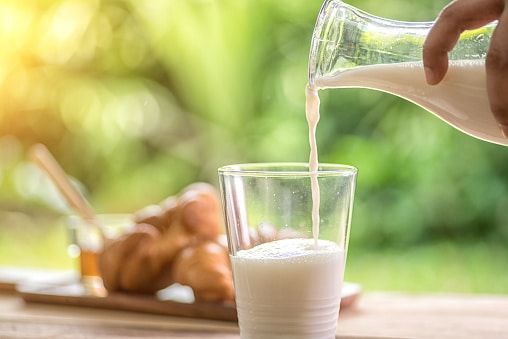
Since you were a kid, you’ve probably heard that milk is good for you. But what does it do for you? And what if you can’t drink milk? Are there times milk isn’t good for you?
Read about the benefits of milk below.
What Are The Benefits Of Milk?
The main benefit of drinking milk is that it contains calcium, which is a major part of building strong bones and teeth. Bones are constantly losing the minerals, such as calcium and phosphorus, that help make them strong. By ingesting milk, our body absorbs those minerals, building back strong teeth and bones.
Another value of milk is that it contains casein proteins, which help build a film over the tooth enamel, which protects teeth from decay.
Milk has a neutral pH, which means that drinking milk can help protect your mouth from the harmful effects of acid.
Saliva production is stimulated by drinking milk, which aids in digestion.
What If I Can’t Drink Dairy Milk?
There are several milk substitutes (such as soy, almond, and oat to name a few) to choose from and many of them have been fortified with vitamins and minerals that are good for your teeth and bones. Often, milk substitutes can be filled with sugar and carbohydrates, so be sure to read the product label carefully.
There are also other food sources that are rich in calcium. These include:
- Fish, shrimp, and crab
- Eggs
- Leafy green vegetables
- Chia and sesame seeds
- White beans
- Figs
Watch Out For This…
While milk does contain several vitamins and minerals that are great for your teeth and bones, it is important to remember that no food or drink (besides water) is good to leave sitting in your mouth. According to a professional dentist, you shouldn’t let children fall asleep with a milk bottle in their mouth, as it can quickly lead to tooth decay. Additionally, maintaining good oral health habits such as brushing and flossing daily, is essential for preventing dental issues.

